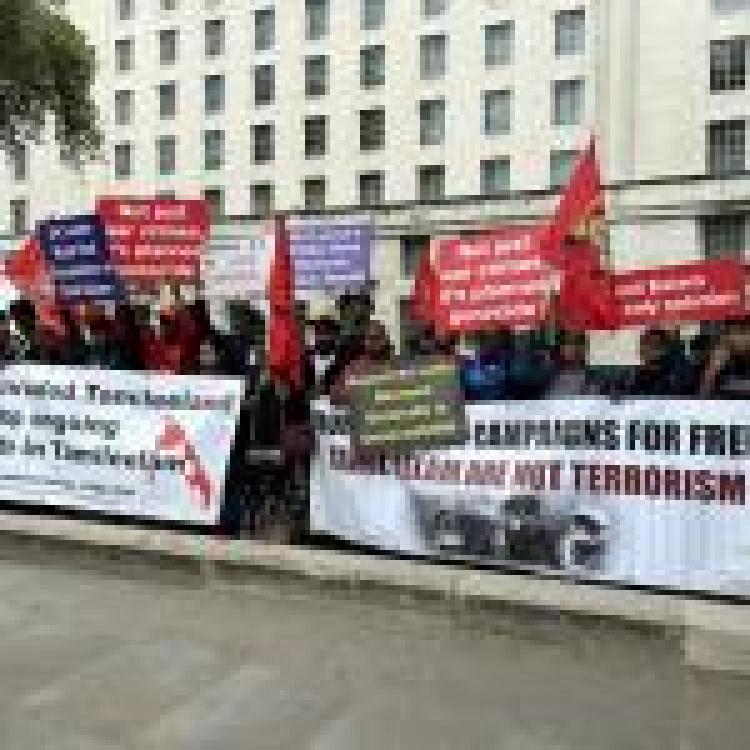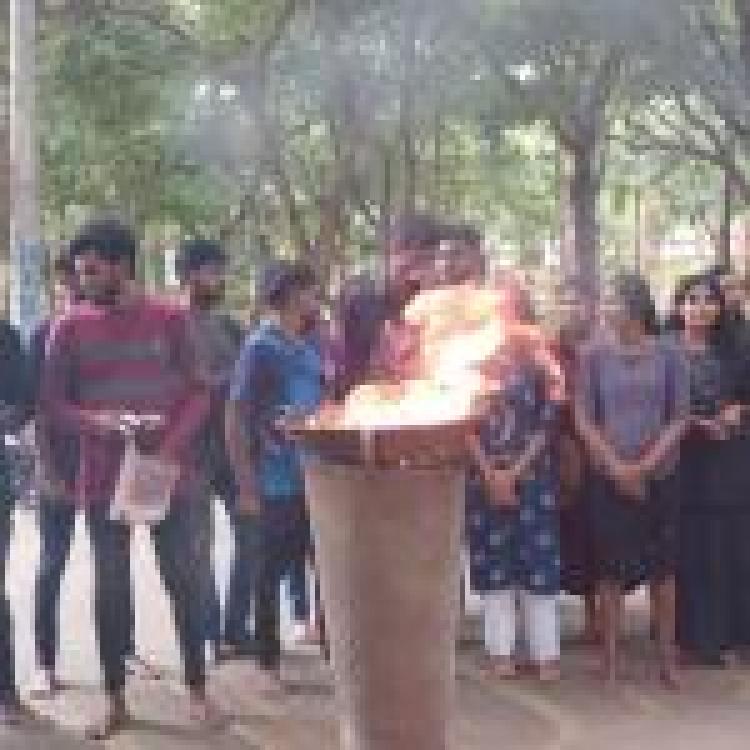Sinhala extremist group, Sinhala Ravaya, disrupted a Black July commemoration event in Colombo over the weekend.
Video footage from the commemoration shows a member of Sinhala Ravaya calling those particiapting in the commemoration 'kottiya' - a Sinhala term used to describe the Liberation Tigers of Tamil Eelam (LTTE).
??? ?????? ??? 40?? ????? ?????????? ??? ???????? ?? ???? ???????? ??? ??????? ?? '???? ?? ??????' ?? ????? ???? ??? ??????? ??????, ?????? ??? ?? ????? ???? ????????????? ??? ???? ?????? ????? ?????????? ??????? ??? ???? ??????, ?????? ???????????? ???????? ??????? ???.. pic.twitter.com/7W6wwx23o4
— LankaFiles ????? (@LFSinhala) July 23, 2023
Sri Lankan riot police then violently pushed the crowd to the floor, in an attempt to disperse the protest.
Sinhala Ravaya is known to be an extreme Sinhala Buddhist nationalist group that strongly aligns itself with the Bodu Bala Sena, founded and headed by the extremist Galagoda Aththe Gnasara Thera. In the recent past, members of the two extremist groups have been known to be responsible for instigating multiple misinformation campaigns against minority groups and for the harassment and intimidation of activists.
In May, a similar incident occured when individuals from the extremist group "Ravana Balaya" tried to disturb an event organised by activists in the South outside Borella cemetery to mark the 14th anniversary of the Tamil genocide at Mullivaikkal. Tamil memorialisation events, particularly in the North-East are repressed or disrupted by the state and Sinhala extremists, either by enforcing legal restrictions or by harassment and intimidation by the state's security forces.




